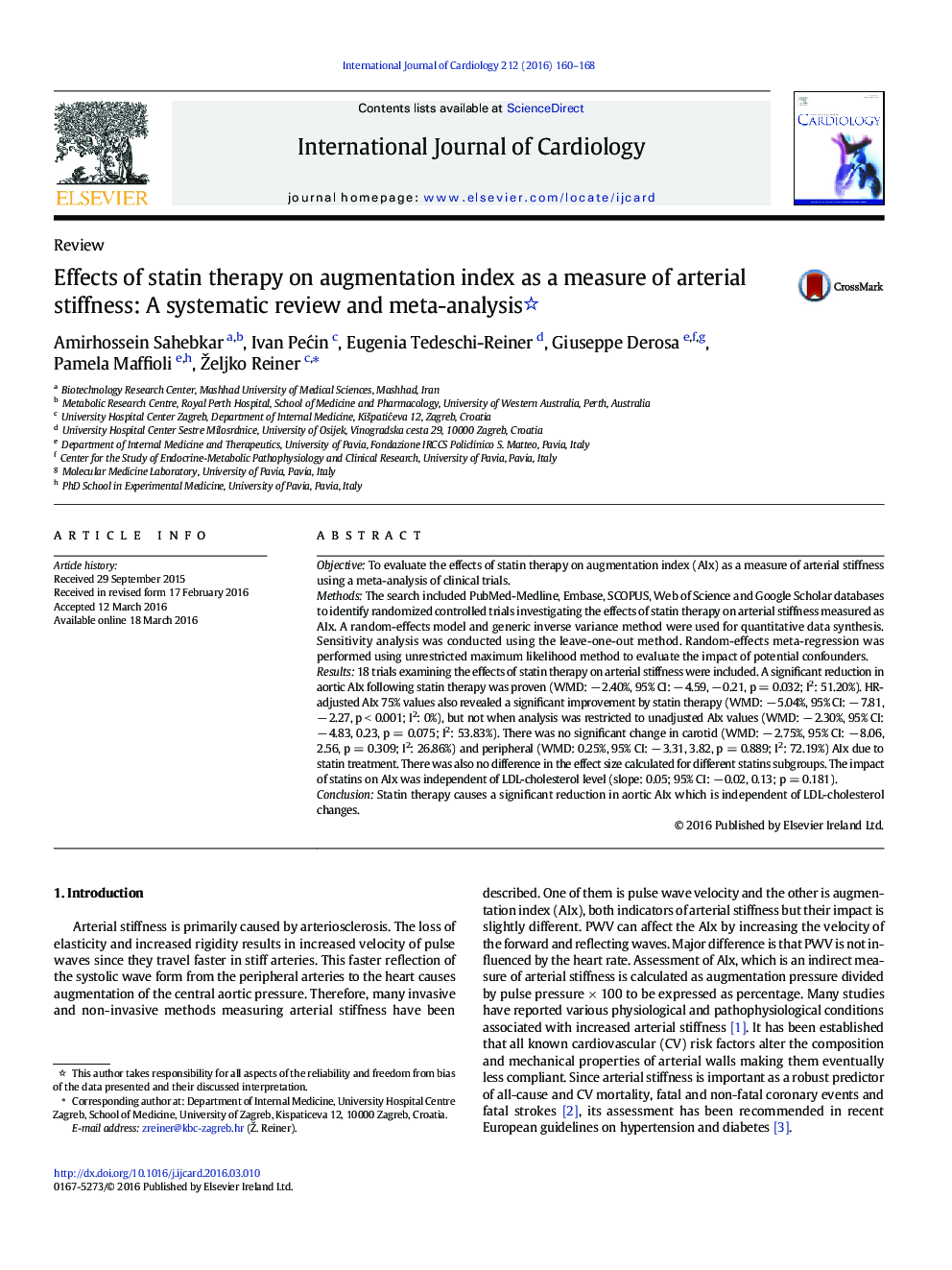| Article ID | Journal | Published Year | Pages | File Type |
|---|---|---|---|---|
| 5964358 | International Journal of Cardiology | 2016 | 9 Pages |
â¢First meta-analysis examining the influence of statin therapy on augmentation indexâ¢18 trials examining the effects of statin therapy on arterial stiffness includedâ¢A significant reduction in aortic AIx following statin therapy was proven.â¢The impact of statins on AIx was independent of LDL-cholesterol level.
ObjectiveTo evaluate the effects of statin therapy on augmentation index (AIx) as a measure of arterial stiffness using a meta-analysis of clinical trials.MethodsThe search included PubMed-Medline, Embase, SCOPUS, Web of Science and Google Scholar databases to identify randomized controlled trials investigating the effects of statin therapy on arterial stiffness measured as AIx. A random-effects model and generic inverse variance method were used for quantitative data synthesis. Sensitivity analysis was conducted using the leave-one-out method. Random-effects meta-regression was performed using unrestricted maximum likelihood method to evaluate the impact of potential confounders.Results18 trials examining the effects of statin therapy on arterial stiffness were included. A significant reduction in aortic AIx following statin therapy was proven (WMD: â 2.40%, 95% CI: â 4.59, â 0.21, p = 0.032; I2: 51.20%). HR-adjusted AIx 75% values also revealed a significant improvement by statin therapy (WMD: â 5.04%, 95% CI: â 7.81, â 2.27, p < 0.001; I2: 0%), but not when analysis was restricted to unadjusted AIx values (WMD: â 2.30%, 95% CI: â 4.83, 0.23, p = 0.075; I2: 53.83%). There was no significant change in carotid (WMD: â 2.75%, 95% CI: â 8.06, 2.56, p = 0.309; I2: 26.86%) and peripheral (WMD: 0.25%, 95% CI: â 3.31, 3.82, p = 0.889; I2: 72.19%) AIx due to statin treatment. There was also no difference in the effect size calculated for different statins subgroups. The impact of statins on AIx was independent of LDL-cholesterol level (slope: 0.05; 95% CI: â 0.02, 0.13; p = 0.181).ConclusionStatin therapy causes a significant reduction in aortic AIx which is independent of LDL-cholesterol changes.
